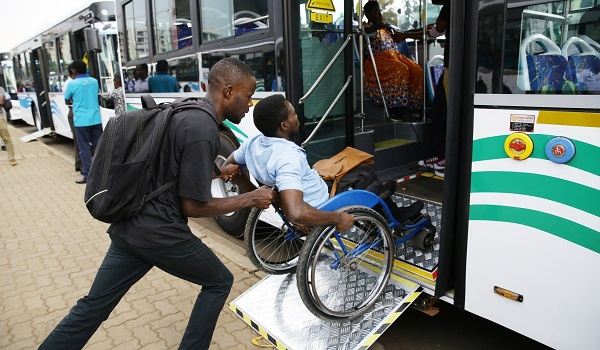 |
KIGALI, Nov 23 (NNN-GNA) — Rwanda seeks to convert 20 percent of its public transportation to electric vehicles by 2030.
The target, unveiled at the just concluded 27th UN climate change conference, in Egypt, is in line with the Green Growth and Climate Resilient Strategy, a 2050 vision for the country of being a developed, climate-resilient and low-carbon economy.
The target, according to the Rwanda Environment Management Authority (REMA), will reduce 72,000 tons of carbon emissions. Rwanda has 1,500 buses, with more to be added for the Kigali Bus Rapid Transit (BRT) system, according to the Rwanda Green Fund (Fonerwa).
“Rwanda is implementing a range of initiatives to promote sustainable mobility in both cities and rural areas, including the introduction of fiscal and non-fiscal incentives to catalyze the adoption of electric vehicles and motorbikes,” said Faustin Munyazikwiye, REMA’s Deputy Director General and lead negotiator for Rwanda at COP27.
Munyazikwiye said the National Sustainable Mobility Policy is facilitating the country’s transition to e-mobility and contributing to low-carbon economic growth by enhancing new transport innovations and encouraging Rwandans to utilize public electric or non-motorized transport such as walking or cycling.
According to studies, 13 percent of emissions in Rwanda are from road transport. More than 40 per cent of the transport sector emissions are from buses.
At COP27, Rwanda showcased e-mobility incentives. The country introduced incentives to attract and ease the process for investors who want to sell or manufacture electric vehicles and charging facilities in the country.
Electric vehicles, spare parts, batteries, and charging station equipment are exempted from import and excise duties and zero-rated for value-added tax.
Companies setting up charging stations across the country can access the government’s land on a rent-free basis. Companies manufacturing and assessing electric vehicles in Rwanda can enjoy a 15 per cent corporate income tax rate and tax holiday.
The costs for charging will be priced at the industrial tariff.
Other related activities include a study to assess the feasibility of e-buses in Kigali and identify the right strategy to deploy e-buses in the capital city with the possibility to replicate a model for larger-scale deployment across the country.
“The transition to e-mobility offers exciting opportunities for the private sector to contribute to building a greener world,” said Donald Kabanda, CEO of REM Ltd, a firm that prides itself in creating self-contained ecosystems that apply practical and efficient operating concepts for its electric vehicles.
At least 33 per cent of motorcycles will be electric, by 2030. The total adoption of electric vehicles and related solutions in Rwanda will require up to $900 million.
Rwanda has 38,800 kilometres of road, of which 4 per cent is paved.
More than $2.2 billion is needed to upgrade elements of the road network to be more climate resilient and improve connectivity, according to the Rwanda Green Fund (FONERWA). — NNN-GNA






